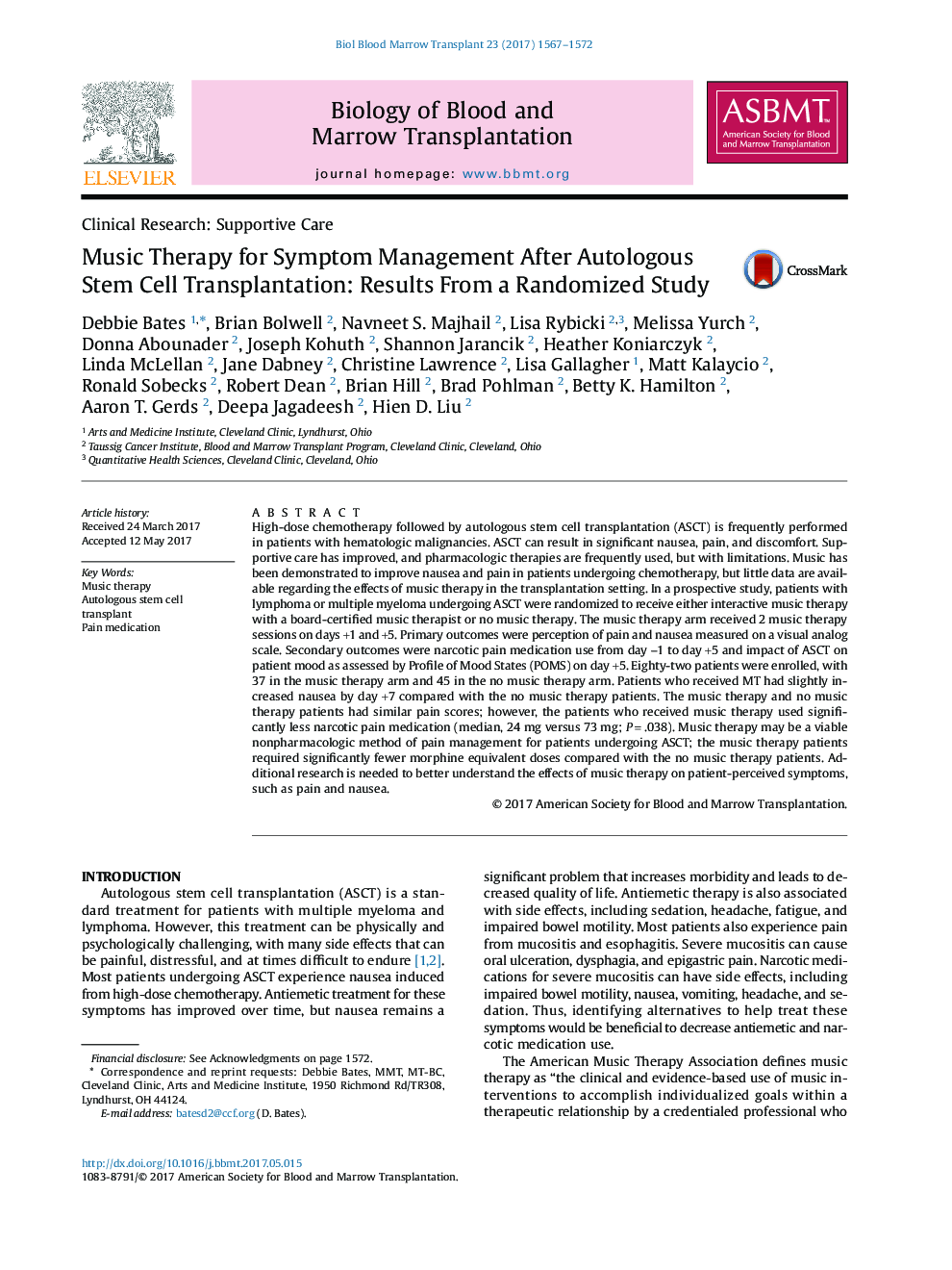| کد مقاله | کد نشریه | سال انتشار | مقاله انگلیسی | نسخه تمام متن |
|---|---|---|---|---|
| 5524391 | 1546237 | 2017 | 6 صفحه PDF | دانلود رایگان |
- Less nausea was reported on days +1 and +5 postassessment in the experimental arm.
- By day +7, the experimental arm reported slightly higher nausea.
- No differences were found between groups on the POMS subscales.
- Self-reported pain scores did not differ between groups.
- The experimental arm used significantly less narcotic pain medication.
High-dose chemotherapy followed by autologous stem cell transplantation (ASCT) is frequently performed in patients with hematologic malignancies. ASCT can result in significant nausea, pain, and discomfort. Supportive care has improved, and pharmacologic therapies are frequently used, but with limitations. Music has been demonstrated to improve nausea and pain in patients undergoing chemotherapy, but little data are available regarding the effects of music therapy in the transplantation setting. In a prospective study, patients with lymphoma or multiple myeloma undergoing ASCT were randomized to receive either interactive music therapy with a board-certified music therapist or no music therapy. The music therapy arm received 2 music therapy sessions on days +1 and +5. Primary outcomes were perception of pain and nausea measured on a visual analog scale. Secondary outcomes were narcotic pain medication use from day â1 to day +5 and impact of ASCT on patient mood as assessed by Profile of Mood States (POMS) on day +5. Eighty-two patients were enrolled, with 37 in the music therapy arm and 45 in the no music therapy arm. Patients who received MT had slightly increased nausea by day +7 compared with the no music therapy patients. The music therapy and no music therapy patients had similar pain scores; however, the patients who received music therapy used significantly less narcotic pain medication (median, 24 mg versus 73âmg; Pâ=â.038). Music therapy may be a viable nonpharmacologic method of pain management for patients undergoing ASCT; the music therapy patients required significantly fewer morphine equivalent doses compared with the no music therapy patients. Additional research is needed to better understand the effects of music therapy on patient-perceived symptoms, such as pain and nausea.
Journal: Biology of Blood and Marrow Transplantation - Volume 23, Issue 9, September 2017, Pages 1567-1572
